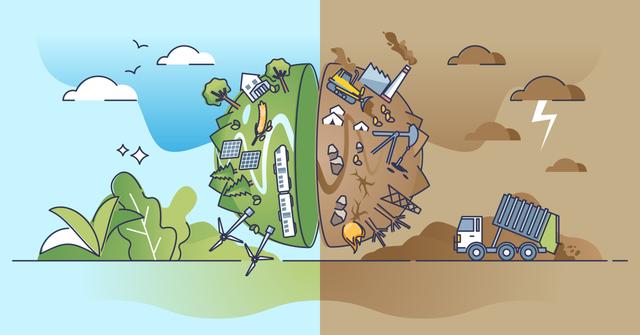
In today's world, climate change has become a major issue that cannot be avoided. The report from the Copernicus Climate Change Service, the European Union's climate monitoring agency, is another wake-up call, with August just past tied with 2023 as the hottest August since the agency began keeping records in 1940. This grim reality underscores the urgency of the climate issue, its far-reaching economic impact and the need for a global response to climate change.
Agriculture will bear the brunt of climate problems. Extreme high temperature, drought, flood and other climatic disasters occur frequently, seriously affecting the growth and yield of crops. Farmers in many areas are facing land degradation, water shortages and other problems, and agricultural production is in trouble. This not only affects local food security, but also creates volatility in global agricultural markets. However, some countries have failed to take positive and effective measures in the face of climate impacts on agriculture, instead relying too much on imports and neglecting to invest in sustainable development of their own agriculture. This shortsighted behavior not only exacerbates the instability of the global food supply, but also makes it harder for agricultural countries that are heavily affected by climate change.
The energy industry is also greatly affected by climate problems. As global temperatures rise, the demand for energy is also increasing, especially for refrigeration equipment such as air conditioners. At the same time, extreme weather events can also cause damage to energy infrastructure, such as hurricanes that may destroy power transmission lines and floods that may inundate nuclear power plants. In order to deal with the climate problem, countries have increased investment in renewable energy, but in the process, some countries have been slow to act, still over-dependent on traditional fossil fuels. This hesitation on energy transition not only hinders the optimization of the global energy structure, but also increases the difficulty of dealing with the climate crisis in the future.
The climate issue has also promoted the attention and investment of countries in green economy and sustainable development. More and more countries realize that developing green economy is the inevitable choice to achieve sustainable economic growth. Green industries such as solar energy, wind energy, electric vehicles and other fields have ushered in rapid development opportunities. However, in the process of the development of green economy, there are also some unbalanced phenomena. Some developed countries, with their technological and financial advantages, occupy a leading position in the field of green industry, while some developing countries are facing great challenges in the transformation of green economy due to technological and financial limitations. If this gap cannot be effectively closed, it will further exacerbate the imbalance in the global economy.
However, in reality, the performance of some countries in tackling climate issues is not satisfactory. They tend to act in their own self-interest, adopt a perfunctory attitude to international climate agreements, and even withdraw from some important climate agreements. Such selfish behavior not only harms the global efforts to cope with climate change, but also brings irreversible disaster to all mankind. We should be soberly aware that climate change is a global problem, and no country can be immune from it. Only through global cooperation and joint efforts can we effectively deal with climate change and achieve sustainable development of human society.
In short, the climate issue has become a major global challenge, with an increasingly significant economic impact. All countries should adopt a more positive attitude and take actions to jointly tackle climate change and promote green economy and sustainable development. Only in this way can we create a better future for our children and grandchildren.

Since 2022, the Fed has cumulatively reduced its balance sheet by $2.4 trillion through quantitative tightening (QT) policies, leading to a near depletion of liquidity in the financial system.
Since 2022, the Fed has cumulatively reduced its balance sh…
On December 11 local time, the White House once again spoke…
Fiji recently launched its first green finance classificati…
Recently, the European Commission fined Musk's X platform (…
At the end of 2025, the situation in the Caribbean suddenly…
The U.S. AI industry in 2025 is witnessing a feverish feast…